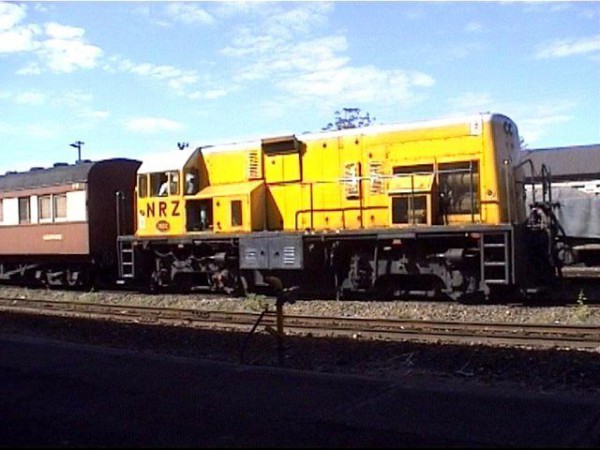A recapitalisation deal for the National Railways of Zimbabwe (NRZ) has been stalled by a procurement dispute between government and the Development Bank of Southern Africa (DBSA).

DBSA, which is owned by the South African government, has agreed to inject US$460 million into the struggling NRZ on condition that the railway firm ropes in a South African technical partner.
This would be in violation of procurement rules which compel the NRZ to issue an international tender for a technical partner rather than choose from those identified by DBSA. Munesu Munodawafa, the permanent secretary in the Ministry of Transport and Infrastructure Dvt, said the situation has put the project on hold.
“In terms of procurement procedures, we have to go for international tender and these guys (DBSA) are saying this is our money (so) you can’t come to South Africa, get our money and give it to a Chinese company. If you want to do that go and get money from that end (China). So it’s a real issue. They have identified key technical partners and they are saying you choose one of these and there is no government guarantee. We will get the money through these companies, some of which are public enterprises in South Africa. Our own system is saying no, we need to go to international tender. So it’s a hurdle that we will table to (Cabinet) to deal with,” he added.
Munodawafa also said if government refuses to accept DBSA’s terms, Zimbabwe would have to court other financiers. The process, however, would further delay implementation of NRZ’s recapitalisation. Government started engaging DBSA late last year and the deal has not yet been signed as the two parties are still in negotiations. However, Munodawafa said once DBSA disbursed the US$460 million, the NRZ’s fortunes were likely to improve.
“The US$460 million is adequate to bring NRZ back on its feet except the re-electrification of the Harare to Gweru line. We need to focus on first things first. We will power the trains with diesel and run them. When we are able to run them we can then think of recapitalisation along the lines of re-electrification,” he said.
NRZ has been saddled with a myriad of challenges ranging from a deteriorating rail-line measuring 1900 kilometres, aging signalling infrastructure, locomotives and wagons. It has 168 locomotives with the latest aged 45 years old while its life expectancy is between 20 to 25 years. The railway company also has 8,600 wagons, of which a mere 3,500 are still in use. The wagons have also outlived their use-by date, with most now over 50 years old.
The NRZ has been getting funds from the Public Sector Investment Programme but this has been a drop in the ocean compared to its requirements. Meanwhile, the Minister of Transport and Infrastructure Development, Obert Mpofu, told a Parliamentary Portfolio Committee on Transport recently that the NRZ was making monthly losses amounting to US$17 million and owed its workers US$36,1 million.
Munodawafa attributed the losses to the railway company’s huge, fixed costs and labour costs. The NRZ is designed to move 18 million tonnes of goods per year and managed to reach 12 million tonnes in 1999 with a workforce of 9,000. However, owing to several challenges, it is managing a mere three million tonnes at the moment, with a huge workforce of 8,000.
Efforts to retrench have previously failed due to the huge costs involved. “If there is an institution that has been hit by the issue of labour laws, it is the NRZ. It has a huge workforce of 8,000 at a time it only moves three million tonnes per year simply because they can’t retrench.
“If they retrench, then they have to pay the retrenched workers and the basic application for the basic retrenchment package, costs so much that the money is better utilised for recapitalisation purposes,” said Munodawafa.
“So, NRZ has fallen victim of such a system. They have a very big fixed cost which they try to spread on the three million tonnes per year,” he said. Financial Gazette






